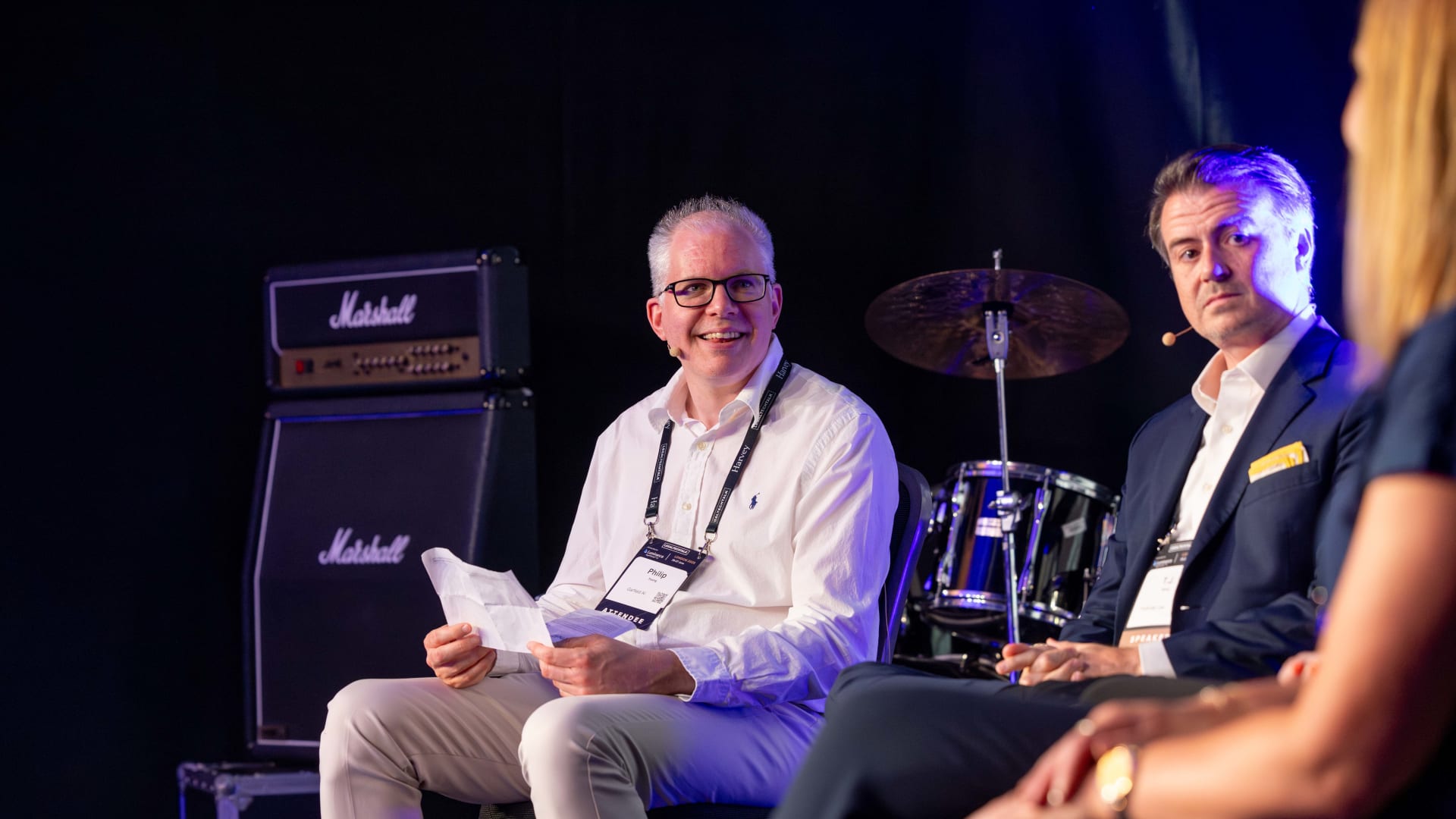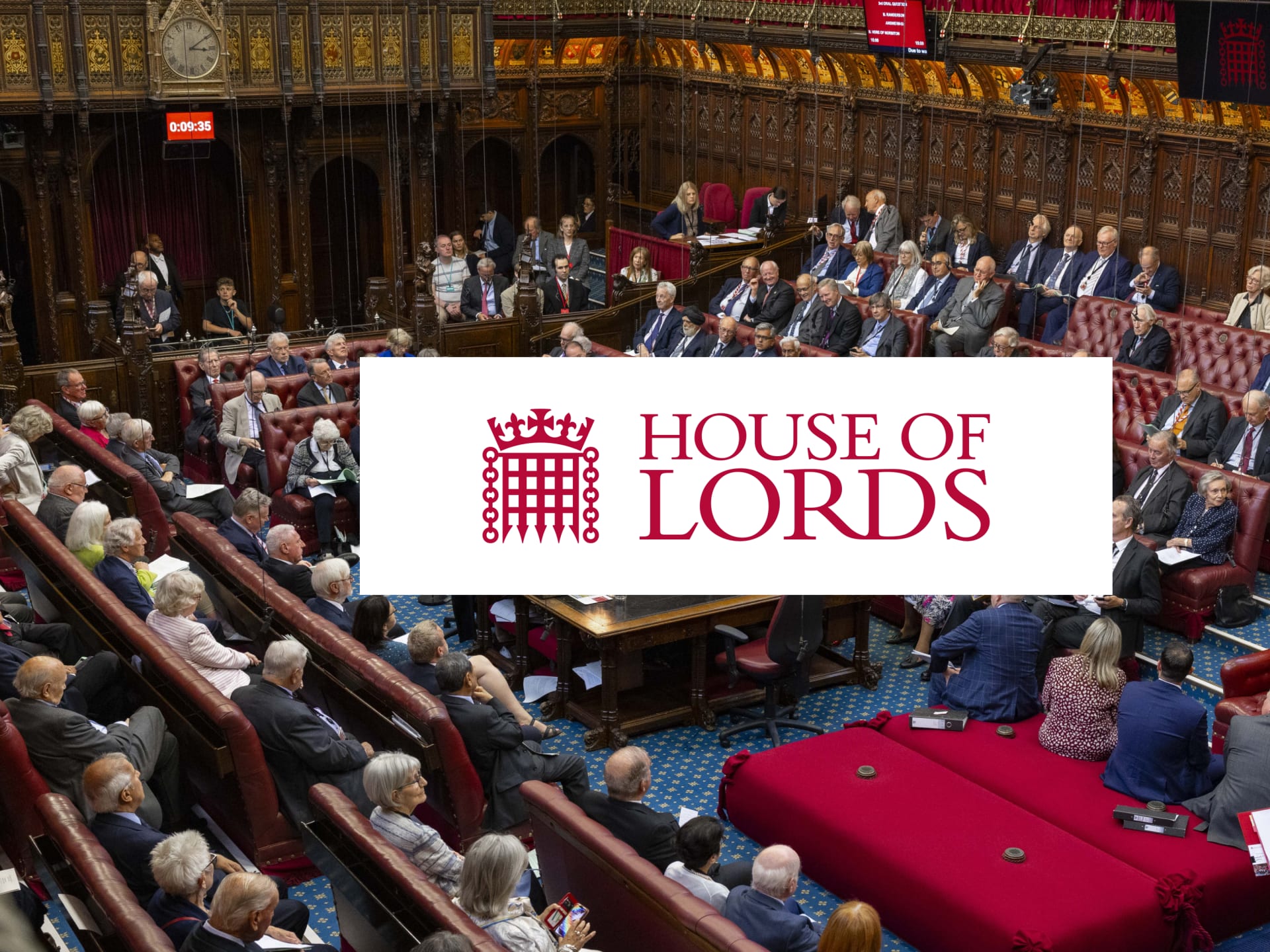Garfield AI CEO Speaks and Chairs Panels at Legal Tech Talk Conference
Philip Young took on dual roles at the Legal Tech Talk conference, participating as a panelist in 'Exploring the Future of Dispute Resolution: Alternatives and Online Platforms' and chairing the discussion on 'Alternative Legal Services on the Rise: Shaping the Future of Legal,' addressing how technology is democratising access to justice and transforming legal service delivery.

London, 27 June 2025 – Philip Young, CEO and co-founder of Garfield AI, participated as a panelist in discussions on the future of dispute resolution and chaired a session on alternative legal services. The dual engagement reflected Philip's expertise in both technological innovation and the broader transformation of legal service delivery.
Legal Tech Talk: Where Law Meets Technology
The Legal Tech Talk conference is the largest legal tech conference in Europe. It brings together legal professionals, technology innovators, policymakers, and entrepreneurs to explore the intersection of law and technology. The conference's core themes include:
- Evolution and Revolution - How technology is transforming legal practice
- Democratising Access to Justice - Making legal services accessible to all
- Purpose Driven Law - Aligning legal services with societal needs
- Relationships and Collaboration - Building partnerships across the legal ecosystem
- Smart Compliance - Using technology to enhance regulatory compliance
Philip's participation in two distinct sessions on the same day underscored Garfield's relevance across multiple dimensions of legal technology transformation.
Panel Discussion: Exploring the Future of Dispute Resolution
In the morning session, Philip participated as a panelist in "Exploring the Future of Dispute Resolution: Alternatives and Online Platforms," examining how technology is reshaping how disputes are resolved. The other panelists were Professor Felix Steffek, Iain Quirk KC of pinqDR and the panel was moderated by Victoria McCloud of W Legal.
The Online Dispute Resolution Revolution
Online Dispute Resolution (ODR) represents a fundamental shift from traditional litigation. Digital platforms enable:
- Remote proceedings eliminating geographic barriers
- Asynchronous communication allowing parties to participate on their schedules
- Automated workflows streamlining procedural steps
- Document management organising evidence and pleadings efficiently
- Cost reduction making dispute resolution accessible at lower price points
Garfield's Position in the ODR Landscape
Garfield exemplifies the ODR approach for small debt claims. The platform enables businesses to:
- Initiate claims entirely online
- Upload supporting documents digitally
- Track case progress in real-time
- Communicate with defendants through the platform
- File with courts via digital integration
- Manage settlements efficiently
This end-to-end digital approach makes dispute resolution accessible to SMEs that would find traditional litigation routes prohibitively expensive and complex.
Alternative Dispute Resolution and AI
The panel explored how AI enhances Alternative Dispute Resolution (ADR) mechanisms:
Mediation Support: AI can help identify common ground and propose settlement terms based on similar case outcomes.
Arbitration Efficiency: Technology streamlines evidence presentation and procedural management in arbitration proceedings.
Settlement Prediction: AI analysis of case factors can provide parties with realistic settlement ranges, encouraging early resolution.
Cost-Benefit Analysis: Automated tools help parties understand the economic implications of pursuing litigation versus settlement.
Access to Justice Through Technology
A central theme in dispute resolution discussions is access to justice. Traditional court processes are often difficult for SMEs with smaller claims to navigate because legal costs exceed potential recovery. Online platforms like Garfield address this problem by:
- Reducing legal costs through automation
- Simplifying complex procedures
- Providing transparent pricing
- Enabling self-service with guidance
- Integrating seamlessly with court systems
Chairing: Alternative Legal Services on the Rise
On the second day of the conference, Philip took on the role of chair for "Alternative Legal Services on the Rise: Shaping the Future of Legal," facilitating discussion about how non-traditional legal service providers are transforming the industry. He was joined by distinguished panelists being T J Henry of Federate, Amanda Bell of SeparateSpace and Victoria Barratt of Addleshaw Goddard.
The Rise of Alternative Legal Service Providers
Alternative Legal Service Providers (ALSPs) have emerged as significant players in legal services delivery, encompassing:
- AI-powered platforms like Garfield providing specific legal services
- Legal process outsourcing firms handling high-volume work
- Technology-enabled services offering specialized solutions
- NewLaw firms with innovative business models
- Legal operations consultancies advising on efficiency and technology
Why ALSPs Are Growing
The panel explored factors driving ALSP growth:
Cost Pressure: Clients demand more affordable legal services, creating opportunities for efficient alternative providers.
Technology Enablement: AI and automation make new service delivery models economically viable.
Unmet Needs: Certain market segments or matter types are not served profitably.
Specialization: ALSPs can focus deeply on specific legal processes or technologies, developing superior capabilities.
Client Expectations: Modern clients expect the same digital experiences from legal services they receive from other professional services.
Regulatory Evolution
Philip's experience navigating SRA authorization for Garfield provided valuable context for discussions about regulation. The panel addressed:
Regulatory Clarity: When do alternative services require regulatory oversight, and what form should that oversight take?
Consumer Protection: How to balance innovation with appropriate safeguards for clients using alternative services?
Reserved Activities: Understanding which legal activities require regulation and how alternative providers can operate compliantly.
Innovation-Friendly Regulation: How regulators like the SRA can enable beneficial innovation while maintaining standards.
Shaping the Future Legal Landscape
As chair, Philip facilitated discussion about where alternative legal services are heading:
Market Maturation: ALSPs moving from niche players to mainstream providers for certain services.
Integration with Traditional Firms: Law firms increasingly partnering with or acquiring ALSPs rather than competing against them.
Specialization vs. Generalization: Whether successful ALSPs will remain highly specialized or expand into broader service offerings.
Global Expansion: How alternative models developed in one jurisdiction can scale internationally.
Technology Convergence: Different technologies (AI, blockchain, analytics) combining to enable new service models.
Contributing Practical Experience
As a panelist on dispute resolution, Philip brought practical insights from building and operating a platform that has handled real cases through the English court system under regulatory oversight.
Looking Forward
As both panels concluded, legal services are in the early stages of a profound transformation. The combination of technological capability, market demand, regulatory evolution, and entrepreneurial innovation is creating opportunities for new approaches to legal service delivery.
Garfield's experience as the first SRA-authorized AI-driven law firm provides a practical case study of how comprehensive innovation can work within regulatory frameworks to expand access to justice.
Learn More
More information about Legal Tech Talk is available at legaltech-talk.com.
About Garfield AI Garfield AI is the world's first AI-driven law firm, approved by the Solicitors Regulation Authority. The platform provides online dispute resolution for small debt claims, demonstrating how alternative legal service providers can use technology to democratize access to justice. Founded by senior City litigation lawyer Philip Young and quantum physicist Daniel Long, Garfield combines legal expertise with technological innovation to transform legal service delivery. Visit garfield.law to learn more.
About the Author

Hugo Rawling
Legal Engineer
In other news


